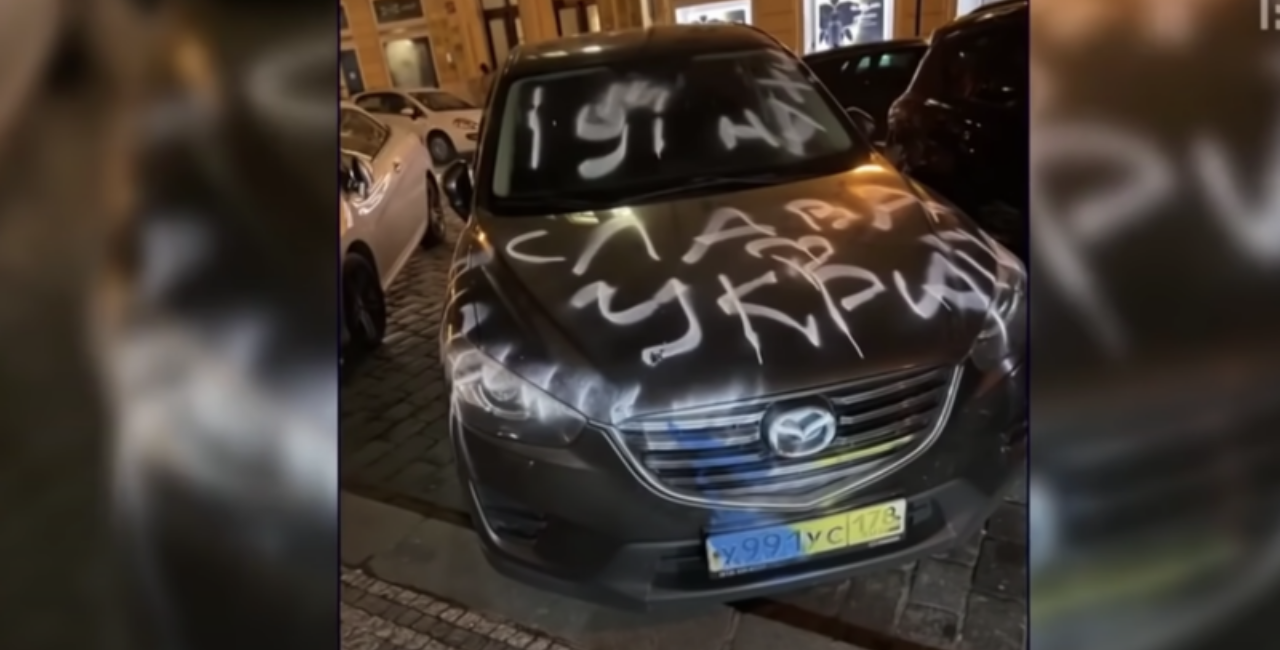The Czech Republic is home to close to 50,000 Russian citizens. Following Russia’s war in Ukraine, their fate is uncertain as Prague no longer delivers visas to Russia, all air and train communications between the two countries have stopped, and some people in the Czech Republic have conflated Putin’s aggression and all Russians a bit too quickly.
On February 24, Russians woke up to the news of a war on Ukraine. Besides experiencing shock, desperation, fear, disappointment, and shame, some of those living outside of Russia have also become targets for anger from non-Russians who do not differentiate between the Russian leadership and Russian people.
Take the discrimination or even exclusion of Russian students during lectures in universities, or the case of a Czech professor calling for a boycott of Russian students and implementing his “own personal sanctions.”
The professor in question posted on social media and later deleted the content, saying it was an emotional reaction. Prague’s Charles University also apologized to its students for the discriminatory behavior by some of the faculty.
Some Russian speakers living in Europe, including in the Czech Republic share stories of Russophobia: a group of hotels has declared a boycott on holders of Russian and Belarusian passports, and some real estate companies have stated they will no longer sell property to Russian citizens.
Russian pupils have been bullied at schools, someone spat in the street at a student speaking Russian on the phone, someone shouted “May you die soon, Russian bitch!” to a journalist of Russian origin, someone humiliated Russian speakers of Ukrainian and Armenian origin, and a taxi-driver threw a woman out of her car because she was speaking Russian with her child. As it turned out, the client was a journalist from the Russian opposition internet TV Dozhd that has been one of the most vocal critics of Putin.
Most of these instances of discrimination are shared on social media, with a call to stop Russophobic behavior, and to make a distinction between Russians and Russian-speakers, and between Russians who support and oppose Putin.
In some cases, the authors of such posts have to turn off the comment sections, or delete them because of the hateful comments.
The dangers of Russophobia
Despite the participation of Russian citizens in pro-Ukraine demonstrations, financial and other volunteer support to Ukrainian refugees, despite calls from Czech officials not to equate Russian citizens to Russian government decisions, waves of discrimination towards Russians and Belarusians are spreading through the Czech Republic, as well as other states of Europe.
Some Czech activists have commented on posts that this Russophobia is justified, and, while in some cases they apologize, but they don’t seem to think it can be avoided; in some comments, there are also proposals of a Russian-free Czech republic.
Russophobia also extends to renaming products and places. For example, the famous “Russian ice-cream” which was a cult product for generations, could soon be renamed “Ukrainian ice-cream” by its producers.
Similarly, the street where the Russian embassy is located could be partially renamed Ukrainian heroes (Ukrajinských hrdinů).
Czech laws guarantee an anti-discriminatory approach to the citizens and non-citizens of the Czech Republic, providing the institution of the Ombudsman as a recourse, monitoring and checking the cases of discrimination. The Russian House in Prague reacted to these situations and wrote an email to share the story of Russophobia in the Czech Republic.
According to the data of the Czech Statistical Office, in the year 2020, there were about 42,000 foreigners with a Russian passport who had been living in the Czech Republic for more than 12 calendar months, on a long-term or permanent residence visa, including the ones who have asylum here.
The article originally appeared on GlobalVoices at this link
Support Prague Morning!
We are proud to provide our readers from around the world with independent, and unbiased news for free.
Our dedicated team supports the local community, foreign residents and visitors of all nationalities through our website, social media and newsletter.
We appreciate that not everyone can afford to pay for our services but if you are able to, we ask you to support Prague Morning by making a contribution – no matter how small 🙂 .
-
NEWSLETTER
Subscribe for our daily news



